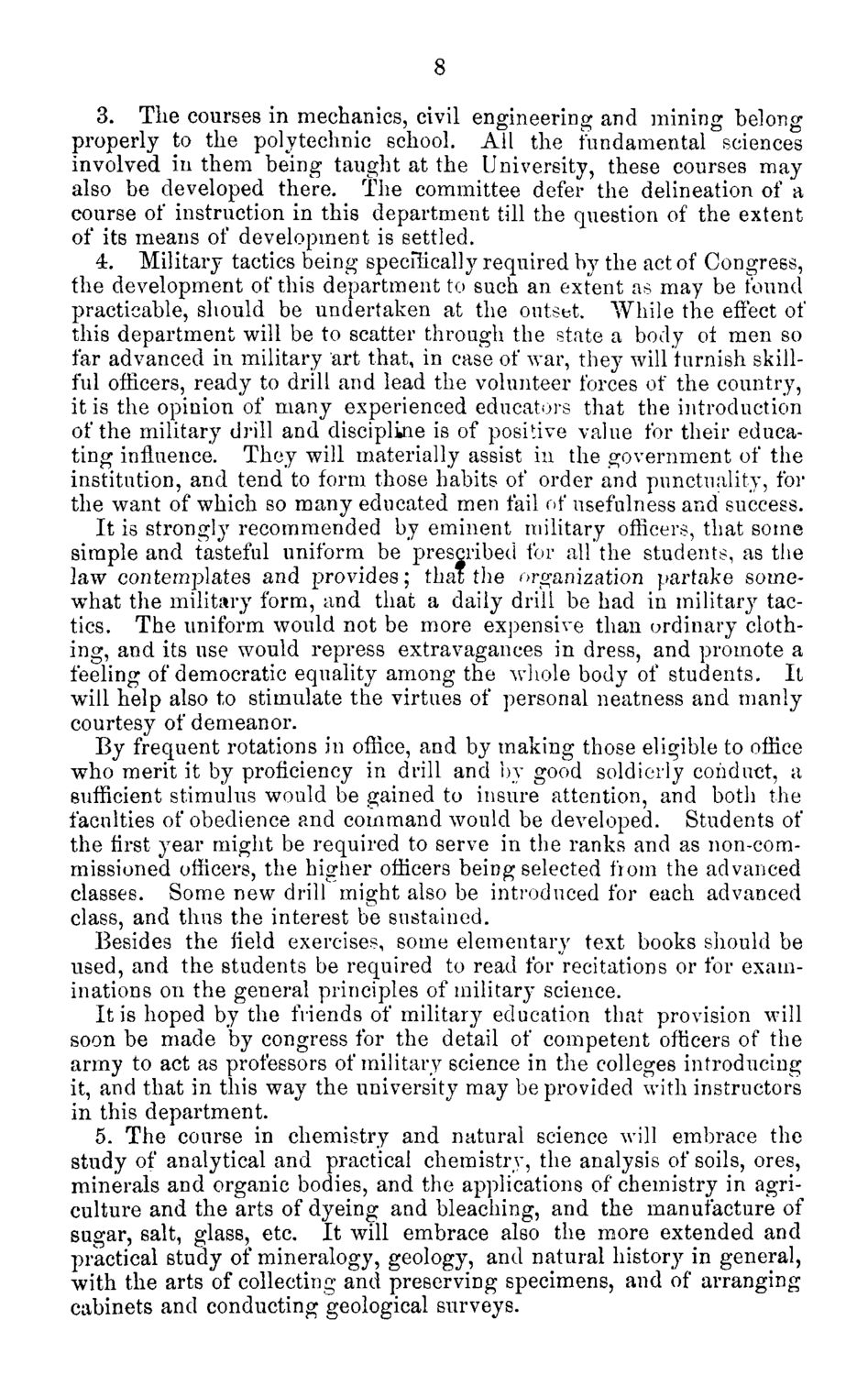| |
| |
Caption: Course Catalog - 1867
This is a reduced-resolution page image for fast online browsing.

EXTRACTED TEXT FROM PAGE:
3. The courses in mechanics, civil engineering and mining belong properly to the polytechnic school. All the fundamental sciences involved in them being taught at the University, these courses may also be developed there. The committee defer the delineation of a course of instruction in this department till the question of the extent of its means of development is settled. 4. Military tactics being specifically required by the act of Congress, the development of this department to such an extent as may be found practicable, should be undertaken at the outset. While the effect of this department will be to scatter through the state a body of men so far advanced in military art that, in case of war, they will furnish skillful officers, ready to drill and lead the volunteer forces of the country, it is the opinion of many experienced educators that the introduction of the military drill and discipline is of positive value for their educating influence. They will materially assist in the government of the institution, and tend to form those habits of order and punctuality, faith e want of which so many educated men fail of usefulness and success. It is strongly recommended by eminent military officers, that some simple and tasteful uniform be prescribed for all the students, as the law contemplates and provides; that the organization partake somewhat the military form, and that a daily drill be had in military tactics. The uniform would not be more expensive than ordinary clothing, and its use would repress extravagances in dress, and promote a feeling of democratic equality among the whole body of students. It will help also to stimulate the virtues of personal neatness and manly courtesy of demeanor. By frequent rotations in office, and by making those eligible to office who merit it by proficiency in drill and by good soldierly conduct, a sufficient stimulus would be gained to insure attention, and both the faculties of obedience and command would be developed. Students of the first year might be required to serve in the ranks and as non-commissioned officers, the higher officers being selected from the advanced classes. Some new drill might also be introduced for each advanced class, and thus the interest be sustained. Besides the iield exercises, some elementary text books should be used, and the students be required to read for recitations or for examinations on the general principles of military science. It is hoped by the friends of military education that provision will soon be made by congress for the detail of competent officers of the army to act as professors of military science in the colleges introducing it, and that in this way the university may be provided with instructors in this department. 5. The course in chemistry and natural science will embrace the study of analytical and practical chemistry, the analysis of soils, ores, minerals and organic bodies, and the applications of chemistry in agriculture and the arts of dyeing and bleaching, and the manufacture of sugar, salt, glass, etc. It will embrace also the more extended and practical study of mineralogy, geology, and natural history in general, with the arts of collecting and preserving specimens, and of arranging cabinets and conducting geological surveys.
| |